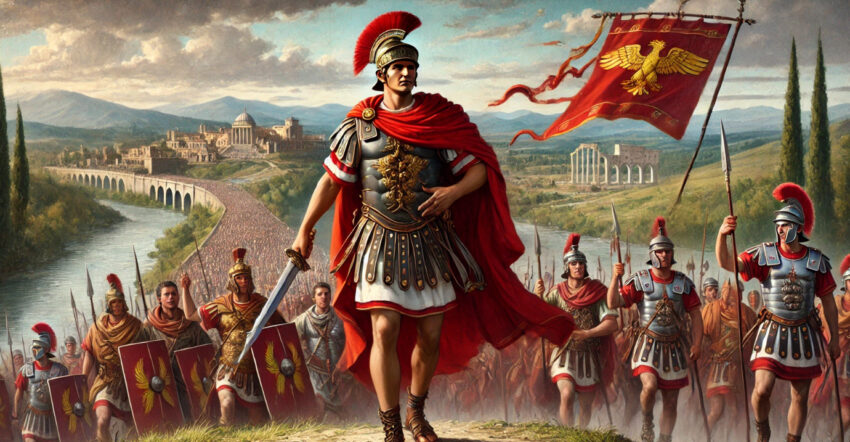Victories at Thapsus and Munda
Following his victory at Pharsalus and the conclusion of the Alexandrian War, Julius Caesar turned his attention to the remaining Pompeian forces that continued to resist his rule. In 46 BC, the remnants of Pompey’s supporters, led by Metellus Scipio and King Juba I of Numidia, gathered in North Africa, hoping to rally opposition to Caesar. This coalition posed a serious threat, and Caesar moved swiftly to confront them. The decisive battle would take place near the town of Thapsus, in modern-day Tunisia.
At the Battle of Thapsus, Caesar’s forces, composed of veteran legions, faced the combined armies of Scipio and Juba. Despite being heavily outnumbered, Caesar’s troops, buoyed by their commander’s leadership, quickly overwhelmed the opposing forces. Caesar employed his usual aggressive tactics, and the battle turned into a massacre, with tens of thousands of enemy soldiers killed. Scipio and Juba both fled but ultimately committed suicide rather than be captured. The victory at Thapsus effectively eliminated the last significant military resistance in North Africa, consolidating Caesar’s control over the western provinces and removing a key source of opposition.
Despite this major victory, the civil war was not entirely over. In 45 BC, Caesar faced one final challenge in Spain, where the sons of Pompey, Gnaeus and Sextus Pompey, had raised an army of loyalists to continue the fight. Determined to crush all remnants of Pompeian resistance, Caesar marched to Spain for what would be the last major battle of the civil war: the Battle of Munda.
The Battle of Munda proved to be one of the most difficult for Caesar. The Pompeian forces were entrenched in strong defensive positions, and Caesar’s initial assaults met fierce resistance. However, through sheer persistence and strategic adjustments, Caesar’s legions eventually broke through the Pompeian lines. Gnaeus Pompey was killed during the battle, while Sextus Pompey escaped but would no longer pose an immediate threat. The victory at Munda marked the end of organized opposition to Caesar’s rule and the conclusion of the Roman civil war.
With his victory at Munda, Caesar stood as the undisputed ruler of the Roman world. His enemies were either dead or in exile, and he now had full control of Rome and its vast territories. The victory at Munda not only cemented Caesar’s power but also set the stage for the profound transformation of the Roman Republic into what would soon become the Roman Empire under Caesar’s heir, Octavian.
 |
 |
 |


